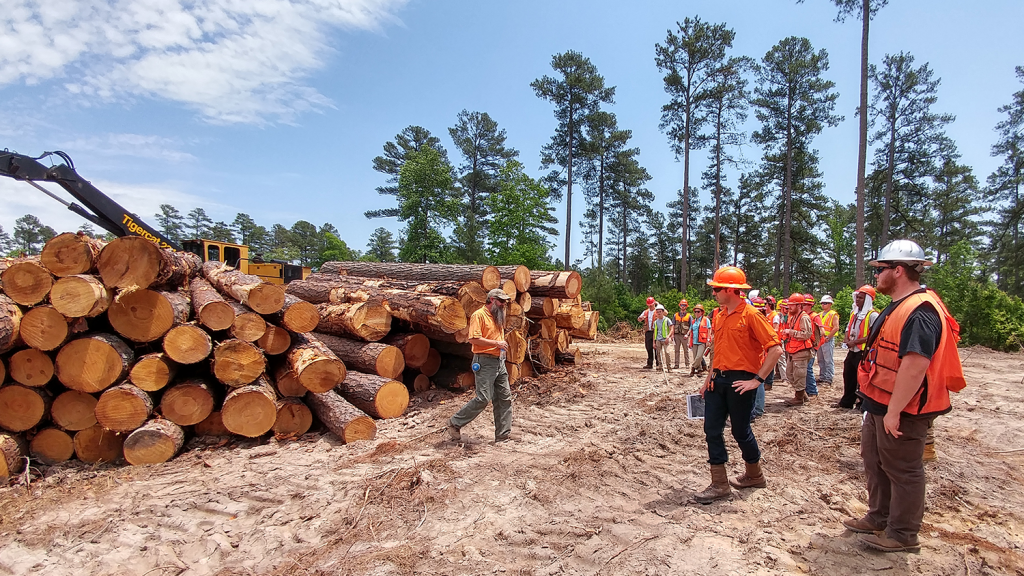Master of Science in Forestry

In general, the Master of Science in Forestry (MS-Forestry) degree requires that a student develop and conduct a research project, then present their methodologies and results of the test or experiment as a thesis. The MS-Forestry degree is the preferred track for students who are interested in pursuing a Ph.D. or who anticipate conducting or reviewing research in their future work. The degree requires a minimum of 30 credits, following all rules of the Graduate School. Two courses are required, FOR 801 (Seminar) and FOR 803 (Research Methods in Forestry and Environmental Resources).
MS-Forestry students can focus on topics ranging from basic scientific inquiry to broader applied management issues. Degrees are available in wide array of areas, including:
- Forest genetics and tree breeding
- Propagation of commercial trees species
- Forest nurseries, nursery soils and regeneration
- Biotechnology and gene transfer in commercial forest species
- Applications of genomic science
- All facets of forest management and operations
- Forest economics
- Forest nutrition
- Hardwoods
- International forestry
- Restoration ecology
- Silviculture
- Woodlots
Many NC State MS-Forestry graduates have gone to work in the international forestry industry. Others have enjoyed academic or field careers, accepted positions with public and private environmental agencies, started their own companies or continued their studies.
Minor Requirement
The Master of Science in Forestry program requires a thesis and the declaration of a minor. While the program emphasizes the forest resources of North Carolina and the southern United States, students may also address forestry challenges across North America or focus on areas that draw on the department’s international expertise, including tropical pine species.
A minor is required as part of the MS in Forestry. It may be declared within any established curriculum at NC State or as an interdisciplinary minor. The minor typically includes at least nine graduate credit hours approved by the advisory committee’s minor faculty member. These courses must be taken during the degree program and must fall within a single curriculum or be selected from departments that form a coherent interdisciplinary focus.
Sample Thesis Topics
Past thesis topics for MS-Forestry students at NC State include:
- Understory Competing Vegetation Characterization and Assessment in Midrotation Loblolly Pine (Pinus taeda) Stands at Hofmann Forest, NC.
- Modeling Timber Supply from Planted Forests in Selected South American Markets: Applications of the SRTS Modeling Framework
- Fuel Loads, Prescribed Fire and Fire Effects in Longleaf Ecosystems: Analysis of Fuel Consumption and Mortality. A Case Study in the Calloway Forest Preserve, NC
- Energy and Water Balance of Wetland Use Change in the Lower North Carolina Coastal Plain.
- Assessing Carolina Hemlock (Tsuga caroliniana Engelm.) Population Genetic Structure and Diversity in the Southern Appalachians using Microsatellite Markers.
- Forest Understory Regeneration after Anthropogenic Disturbances in a Semi-deciduous Tropical Dry Forest in Puerto Rico.
- Impacts on Growth and Quality of Interplanting Loblolly Pine (Pinus taeda L.) Seedlings with Clonal Material in the Lower Coastal Plain of North Carolina.
- Corporate Social Responsibility in North Carolina’s Small and Medium-sized Forest Products Companies.
For the full text of these dissertations as well as a look at other topics FER graduate students have pursued, please visit the Electronic Thesis and Dissertation Library of the NC State Graduate School.